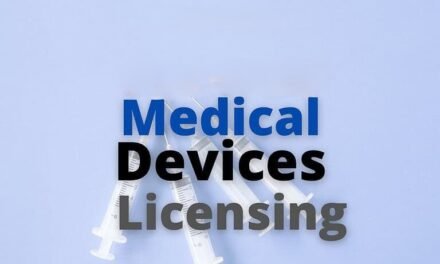
What role does 5G play in enhancing medical device connectivity in Tamil Nadu?

The advent of 5G technology in Tamil Nadu is revolutionizing the medical device industry by enabling faster, more reliable, and highly efficient connectivity. It supports the development and operation of advanced medical devices, enhancing patient care, operational efficiency, and innovation in healthcare. Here’s how 5G impacts medical device connectivity:
1. Enhanced Connectivity for IoT Devices:
- Seamless Communication:
- 5G offers low latency and high bandwidth, enabling real-time data exchange between connected medical devices, wearables, and healthcare systems.
- IoT Integration:
- Supports large-scale deployment of Internet of Things (IoT)-enabled medical devices, ensuring robust and uninterrupted connectivity.
- Example:
- Remote patient monitoring systems in Tamil Nadu can transmit real-time health metrics to doctors, allowing timely interventions.
2. Real-Time Diagnostics and Imaging:
- Faster Data Transmission:
- High-speed 5G networks enable the rapid transmission of large medical imaging files, such as MRIs and CT scans, improving diagnostic efficiency.
- Remote Diagnostics:
- Allows specialists in urban centers to access imaging data from rural healthcare facilities instantly, bridging the healthcare gap in remote areas.
3. Telemedicine and Remote Care:
- High-Quality Video Consultations:
- 5G ensures seamless video communication, enhancing telemedicine services and remote consultations.
- Home-Based Healthcare:
- Supports the use of wearable devices and smart medical tools for home-based care, with data seamlessly integrated into hospital systems.
- Example:
- Tamil Nadu’s telemedicine initiatives can leverage 5G to connect rural patients with specialists in real-time.
4. Enabling Advanced Medical Technologies:
- Surgical Robotics:
- 5G enables real-time control and monitoring of robotic surgical systems, improving precision and outcomes.
- Augmented and Virtual Reality (AR/VR):
- Facilitates the use of AR/VR in medical training, remote surgeries, and rehabilitation programs.
5. Predictive and Preventive Healthcare:
- AI and Machine Learning:
- 5G enhances the performance of AI-powered medical devices, enabling faster data processing for predictive analytics and personalized care.
- Early Detection:
- Enables devices to analyze trends and predict health issues before they become critical.
6. Revolutionizing Emergency Care:
- Ambulance Connectivity:
- 5G-connected ambulances can transmit patient data, including vital signs and imaging, to hospitals while en route, ensuring readiness upon arrival.
- Drones for Medical Supplies:
- Facilitates the use of drones to deliver critical medical supplies or devices to remote locations.
7. Improving Operational Efficiency:
- Smart Hospitals:
- 5G networks enable connected systems within hospitals, including automated inventory management, equipment tracking, and patient monitoring.
- Efficient Data Sharing:
- Facilitates seamless collaboration among departments and healthcare providers.
8. Strengthening Rural Healthcare:
- Bridging Urban-Rural Gaps:
- 5G enables healthcare facilities in rural Tamil Nadu to connect with urban specialists, ensuring equitable access to advanced medical care.
- Mobile Health Units:
- Supports the deployment of mobile health units equipped with connected medical devices.
Challenges and Considerations:
- Infrastructure Development:
- Expanding 5G networks to rural areas requires substantial investment and collaboration between public and private sectors.
- Device Compatibility:
- Medical devices must be updated or designed to be compatible with 5G networks.
- Data Security:
- Protecting patient data transmitted over 5G networks is crucial, requiring robust cybersecurity measures.
Examples of Adoption in Tamil Nadu:
- Smart Healthcare Projects:
- Tamil Nadu’s smart city initiatives integrate 5G technologies to enhance healthcare delivery.
- Collaborations:
- Partnerships between healthcare providers and telecom companies to develop 5G-enabled medical solutions.
5G is set to play a transformative role in Tamil Nadu’s medical device industry by enabling real-time connectivity, enhancing the capabilities of IoT devices, and supporting telemedicine and advanced diagnostics. As the technology matures, it will drive innovation and improve access to quality healthcare, particularly in underserved regions, positioning Tamil Nadu as a leader in connected medical technology.




























